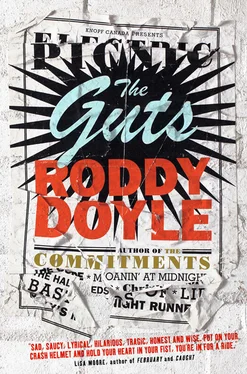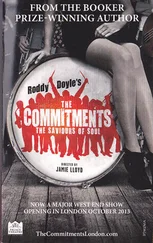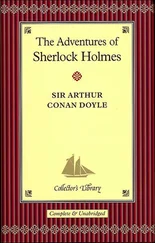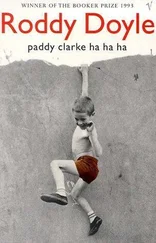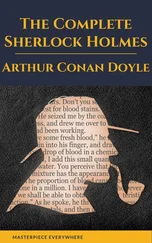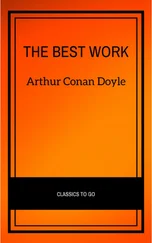— Now, said Des. — The bit extra. Imagine you’re filling your stomach with air. I think that’s how we imagine it anyway, filling our stomachs, not our lungs. You can exhale now.
— Thanks.
— Put the mouthpiece to your lips. Purse the lips, good and tight. Breathe in. No — keep the lips tight. Yeah — and breathe. And blow. Release the air. You’re in control. Just — blow —. Great. That was a G.
— Was it?
— Not really, said Des.
It was fuckin’ freezing. The station platform — southbound — was the most exposed place on earth. Fuckin’ Attenborough hadn’t a clue.
— Has there been a murder, love?
— No, we’re filmin’ a video.
— Ah, lovely. Is the young one in it?
— She is, yeah.
— She’s gorgeous, isn’t she?
— Yeah.
— She must be petrified though, God love her.
— It’s only for a bit. She’ll have her coat back on in a minute.
— Ah grand.
He hunched down, and looked at it framed in the monitor. Barry standing like Elvis Costello c . 1977, Brenda standing behind the drums like Moe Tucker c. 1967, the Dart crawling past them as Barry roared it for the fourth time.
— SHE’S SMILING BACK AT ME —
AND SHE’S SHOWING ME HOWTH JUNCTION —
He was singing straight into the weather, sweating, losing weight on one of the coldest days of the winter.
— Happy?
The director, Pete, was hunched beside Jimmy.
— Yep, said Jimmy.
— Cut! That’s our take. Now’s your moment, Avril!
Jimmy stood up straight, and felt fuzzy, weak, just for a moment. But the cold quickly fixed him. He watched the cameraman lift the camera and bring it closer to the station sign. He watched the young one, Avril — she was a model, one of those glamour ones. She usually did photo shoots in a bikini, launching new sewerage schemes with county councillors. Jimmy watched her point at the sign, at the Junction in Howth Junction, and raise her eyebrow — exactly as the script demanded.
It was a different batch of people this time. Different patients, different nurses. This new one smiled when he asked for ice and lemon.
Still the same terror as he watched the bag of poison being hoisted. He’d never yawn when that happened. He’d never feel like a veteran.
There was a fella beside him who was obviously up for a chat. Jimmy put in his earphones and headed him off at the pass. He didn’t turn on the sound; he couldn’t have coped. But he scrolled through the bands and chose the songs for his funeral.
— I was fine for two days after. But then — Jesus, Les.
— It’s the steroids, said Les. — They mask the nausea. But they wear off.
— It didn’t happen the first time but.
— No, said Les. — Same here.
— Horrible.
— Yeah.
— Thanks, by the way.
— It’s fine, said Les. — Any time you want to talk —
— Thanks.
— No problem.
— I don’t want to worry Aoife or — or — the kids. Sorry.
— Fine.
— I’m out in the fuckin’ garden.
— Just remember, it’s normal.
— I know.
— And it stops.
— But it fuckin’ comes back.
— I know.
— And I can’t even vomit.
— Yep.
— How’re things with you anyway, Les?
— Fine.
— Thanks for this.
— It’s fine.
The barman told him to go back outside and around to the basement. That was where the gigs were.
He waited at the top of the stairs. He could hear the music — he could feel it, coming up from the wooden steps. He went down the first six or seven, to the turn. The heat came up at him — it felt like a crowd. He stayed there a while, a few seconds. He was hoping Marvin wouldn’t see him. He hadn’t told him he’d be coming — he hadn’t asked. He didn’t want to embarrass him. He’d only stay for half a song.
He made his move.
It got hotter every step down. It was ages since Jimmy had felt crowd heat like this. The gigs he’d been organising were usually a couple of dozen middle-aged people, looking awkward, trying to remember what they were supposed to do.
The beat became real sounds as he got to the bottom of the stairs, and his head dropped below the top of the door at the same time that a kid on the platform — it wasn’t a stage — grabbed the mic off its stand and screamed.
— He was incredible.
— Did he see you?
— I only stayed for a bit.
— It’s great you saw him.
— Ah Jesus, Aoife. I’m so fuckin’ proud.
— Tell him.
— I will, don’t worry. The place was jammered.
— Great.
— It only fits — it couldn’t be much more than a hundred. But it was packed. Teemin’. But you should’ve seen him. D’you remember Jason an’ the Scorchers?
— No.
— Country-punk. No?
— No.
— They were brilliant. Mad live now — mad. All over the stage. And the guitarist used to spin around while he was playin’. An’ Marvin did that — exactly like it. He nearly decapitated a few o’ the punters at the front.
— Great.
— I’m goin’ up to play me trumpet.
Norman lived just off the New Cabra Road.
Jimmy waited for his da to park his van behind him. He looked at his da checking that he had the right house, squinting a bit. He looked a bit uncertain, even unhappy. Then he saw Jimmy’s car in front of him.
— Here’s my da now, he said, and he opened his door.
The fuckin’ nausea — it was lurking, waiting for him. He needed air. He needed his da.
He got out of the car. Fuck the nausea.
— How’s it goin’? he said.
His da was out of the van, hitching up his jeans.
— Howyeh, he said. — How’re things?
— Grand, said Jimmy.
He stepped back, and to the side.
— This is Ocean, he said. — From work.
— Hii ii .
— Ocean, he said. — This is my dad. Jimmy — as well.
— Howyeh, Ocean.
— Ocean is — she’s coordinatin’ the project, Jimmy told his da. — Does that sound okay, Ocean?
— That sounds great, said Ocean.
His da was staring at her a bit. Jimmy hadn’t told him she’d be with them.
— We might as well go in, said his da. — He knows we’re comin’. I had to shout a bit on the phone. He’s gone a bit deaf, I think.
He pushed the gate. He had to give it a lift too, to get it open.
— Tragic really, he said. — Goin’ deaf in a house full o’ records. I’ll oil his gate while we’re here.
He stepped onto the porch and rang the bell.
— Did yis hear tha’? he asked Jimmy and especially Ocean. — I couldn’t hear annythin’.
He put his ear to the pebbled glass and pressed the bell again.
— You’d want to be a dog to hear tha’ fuckin’ bell, said his da.
He ran his hand down the side of the glass, along the paint and wood.
— Needs a bit o’ work, he said.
— Here he comes, said Jimmy.
They saw the shape, then the man behind the glass, and the hand going to the lock.
— Here we go, said Jimmy’s da.
The door was opening.
— There y’are, Norman.
— Is it Jimmy Rabbitte?
— It is, said Jimmy’s da.
— There’s no need to shout, said Norman.
He was a small man, and kind of papery. Jimmy didn’t think he’d ever met him before. He couldn’t remember a younger version. He was smiling, but unfriendly. He took something out of his waistcoat pocket.
— Look.
He was talking to Jimmy’s da. He’d paid no attention to Jimmy or Ocean.
— See here? Three settings.
— What’s tha’, Norman?
— Stop shoutin’, I told yeh. It’s my hearin’ aid.
— Should it not be in your ear or behind it or somethin’?
Читать дальше
